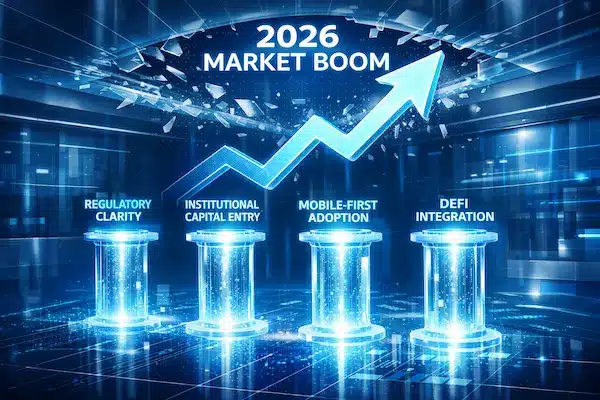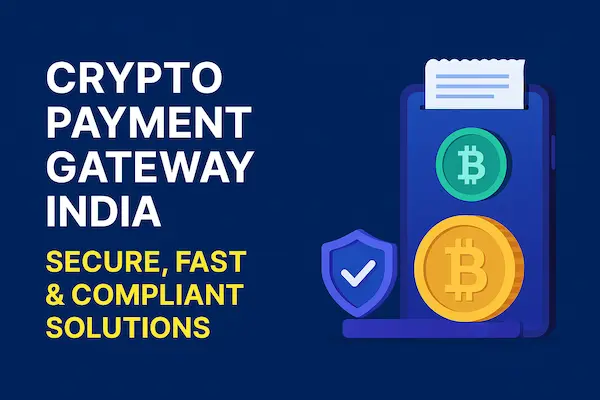Over the past decade, the online gambling industry has undergone a massive transformation, and one of the most disruptive shifts has been the rise of Crypto Casino Platforms Worldwide. Unlike traditional platforms that rely on banks or payment processors, crypto casinos harness blockchain technology to deliver faster transactions, improved transparency, and a global reach. This shift is not just about convenience—it reflects a larger change in how people interact with digital assets, online entertainment, and financial ecosystems.
As 2026 approaches, analysts project that the global crypto gambling sector will reach record adoption levels. Stablecoins such as USDT and USDC are making it easier for users to play without worrying about volatility, while regulatory debates continue to shape the industry’s future. Investors, developers, and players are all watching closely, as Crypto Casino Platforms Worldwide may redefine the entire online gaming landscape.
Contents
- 1 1. What Are Crypto Casino Platforms Worldwide?
- 2 2. Global Adoption Trends of Crypto Casino Platforms
- 3 3. Key Drivers Behind the 2026 Growth Boom
- 4 4. Regulatory Challenges Facing Crypto Casino Platforms Worldwide
- 5 5. Market Outlook 2026 – Forecast & Opportunities
- 6 6. Risks & Concerns in Crypto Casino Platforms Worldwide
- 7 7. Comparison – Traditional Online Casinos vs Crypto Casinos
- 8 8. The Future of Crypto Casino Platforms – Beyond 2026
- 9 FAQs – Crypto Casino Platforms Worldwide
- 10 Conclusion – The Future of Crypto Casino Platforms Worldwide
1. What Are Crypto Casino Platforms Worldwide?
At their core, Crypto Casino Platforms Worldwide are digital gambling platforms that allow users to deposit, wager, and withdraw funds using cryptocurrencies instead of traditional fiat money. While early online casinos were limited to credit cards, wire transfers, or e-wallets, the new generation of platforms operates directly on blockchain networks. This shift offers players instant settlement, reduced transaction costs, and a level of transparency that was previously impossible.
What makes these platforms stand out is their reliance on smart contracts. Rather than trusting a centralized operator, outcomes and payouts can be verified on-chain, ensuring fairness and removing the fear of manipulation. Many platforms also integrate stablecoins like USDT, USDC, and PYUSD, providing predictable value for both players and operators.
Beyond payments, crypto casinos are evolving into ecosystems that include NFT-based rewards, tokenized loyalty programs, and connections to the broader DeFi space. In short, they represent the next stage in iGaming—one that combines entertainment with financial innovation, while appealing to a new generation of tech-savvy players.

2. Global Adoption Trends of Crypto Casino Platforms
The expansion of Crypto Casino Platforms Worldwide is not a regional phenomenon but a global movement that reflects shifting user behavior, regulatory landscapes, and technological innovation. Below are the key trends shaping adoption across continents.
1. North America: From Niche to Mainstream
In the United States and Canada, crypto gambling started as a niche activity. However, the integration of stablecoins and growing acceptance of blockchain technology have fueled steady adoption. Major states are still debating regulations, yet the demand for transparent and fast digital payments continues to push operators to experiment with blockchain-based casinos.
2. Europe: A Regulated but Growing Market
Europe has historically been one of the most active regions for online gambling, and crypto casinos are following the same path. Countries like the UK, Malta, and Estonia are providing clearer regulatory frameworks, which encourage operators to innovate responsibly. European users are particularly attracted to the fairness of blockchain-based games, where smart contracts ensure verifiable outcomes.
3. Asia: The Fastest Growing User Base
Asia is emerging as the largest potential market for Crypto Casino Platforms Worldwide. With massive populations in countries like India, the Philippines, and Vietnam turning to digital payments, crypto casinos are becoming a natural extension of online entertainment. The younger demographic is especially drawn to NFTs, tokens, and gamified ecosystems, creating explosive demand in this region.
4. Latin America: Opportunity Driven by Economic Instability
Latin America has also seen rapid adoption, particularly in countries facing inflation and currency devaluation. Here, crypto casinos offer not only entertainment but also a form of financial alternative, as players use stablecoins to preserve value and bypass unstable local currencies.
5. Stablecoins as the Driving Force
Across all regions, the use of stablecoins remains the most important adoption trend. Players value predictable currency for wagering, while operators benefit from reduced volatility and faster settlements. By 2026, stablecoins are expected to account for a majority of transactions on leading Crypto Casino Platforms Worldwide.

3. Key Drivers Behind the 2026 Growth Boom
The growth of Crypto Casino Platforms Worldwide in 2026 is not happening by chance. Several key factors are converging to accelerate adoption, transform user experiences, and attract massive investment into the sector.
Integration With DeFi and Web3 Ecosystems
One of the most powerful growth drivers is the integration of Decentralized Finance (DeFi) into gambling platforms. Many crypto casinos now allow users to stake tokens, earn rewards, and even participate in liquidity pools while gaming. This combination of entertainment and finance makes platforms far more appealing than traditional casinos.
Web3 tools are also opening new opportunities. Players can log in with decentralized wallets, maintain ownership of their assets, and participate in community-driven governance models. This creates a sense of empowerment and transparency rarely seen in the gambling industry.
The Metaverse and Immersive Experiences
Another factor fueling the rise of Crypto Casino Platforms Worldwide is the rapid expansion of the metaverse. Virtual reality (VR) and augmented reality (AR) casinos allow players to step inside fully immersive environments where they can interact with others in real time. By 2026, this experience will likely become mainstream, offering a blend of social networking and high-stakes gaming that traditional platforms cannot match.
Stablecoins as a Game Changer
The introduction of stablecoins has addressed one of the biggest concerns in crypto gambling: volatility. Players now use USDT, USDC, and PYUSD to wager without worrying about sudden price swings. Operators, in turn, gain predictable revenue and improved liquidity management. This stability is helping crypto casinos attract not only crypto enthusiasts but also mainstream players who previously avoided the space.
Regulatory Shifts Toward Acceptance
While regulation has long been a challenge, 2026 marks a turning point as more governments begin to recognize and regulate Crypto Casino Platforms Worldwide. Instead of outright bans, countries are now drafting clearer compliance rules, especially regarding KYC and AML. This trend is helping platforms earn legitimacy and attract institutional investment.

4. Regulatory Challenges Facing Crypto Casino Platforms Worldwide
The path toward mainstream adoption is not without obstacles. Despite their growth, Crypto Casino Platforms Worldwide face a complex and evolving regulatory environment. Understanding these challenges is essential for operators, investors, and players alike.
1. United States: Fragmented and Uncertain Rules
In the United States, gambling laws vary widely from one state to another. While some states permit online gambling under strict licenses, others prohibit it altogether. Adding crypto into the mix makes regulations even more uncertain. Federal agencies continue to debate how Crypto Casino Platforms Worldwide should be classified—whether as gambling platforms, financial services, or hybrid digital assets.
2. Europe: Structured but Strict Compliance
Europe is further ahead in providing structured rules for crypto gambling. Countries like Malta and Estonia have already positioned themselves as hubs for blockchain-based casinos, offering licenses under strict AML and KYC requirements. However, the European Union’s broader digital finance regulations demand high compliance standards, which can create barriers for smaller operators.
3. Asia: Grey Areas and Rapid Expansion
Asia presents one of the most interesting paradoxes for Crypto Casino Platforms Worldwide. While adoption is booming, regulations remain unclear or contradictory. Countries like Japan and South Korea enforce tight controls, whereas others such as the Philippines are more open. The lack of harmonized rules means operators must navigate each market carefully, balancing opportunity with legal risk.
4. Latin America: Opportunity Amid Instability
In Latin America, economic instability has driven interest in crypto gambling, but the legal environment is inconsistent. Some countries tolerate crypto casinos due to weak enforcement of digital laws, while others are beginning to introduce frameworks. For investors and platforms, this region offers high growth potential but also significant uncertainty.
5. AML and KYC Pressures
Perhaps the most universal challenge for Crypto Casino Platforms Worldwide is compliance with Anti-Money Laundering (AML) and Know Your Customer (KYC) regulations. Governments worry that anonymous gambling may be exploited for illicit activity. As a result, many platforms are now adopting tiered KYC systems—allowing small wagers with minimal checks but requiring full identity verification for larger transactions.

5. Market Outlook 2026 – Forecast & Opportunities
The global market for Crypto Casino Platforms Worldwide is projected to expand significantly by 2026, driven by mainstream adoption, stablecoin integration, and evolving regulations. Below are the key forecasts and opportunities shaping the future.
Global Market Forecasts
Analysts estimate that the global crypto gambling sector could surpass $65 billion in total market value by 2026, with a compound annual growth rate (CAGR) of 12–15%. This growth is fueled by increased internet penetration, digital payment adoption, and the rise of blockchain-based entertainment. Stablecoins are expected to account for more than 70% of all transactions on crypto casinos, reducing volatility risks and boosting user trust.
Opportunities for Startups and Investors
For startups, Crypto Casino Platforms Worldwide represent a fertile ground for innovation. Unlike traditional casinos, entry barriers are lower thanks to blockchain’s open infrastructure. Entrepreneurs can build niche platforms around NFTs, DeFi staking, or metaverse integration. For investors, the combination of high-growth potential and global scalability makes crypto casinos an attractive portfolio addition.
Case Study: Stake and BC.Game
Platforms like Stake and BC.Game showcase how crypto casinos are evolving. Stake has become one of the largest crypto casinos globally, attracting users through fast payments, influencer marketing, and transparency. Meanwhile, BC.Game has built a strong community by integrating multiple cryptocurrencies, loyalty programs, and provably fair games. These cases demonstrate how innovative models can drive mainstream adoption by 2026.
Emerging Markets as Growth Engines
Developing regions such as Southeast Asia, Africa, and Latin America are expected to play a crucial role in driving adoption. High smartphone penetration and limited access to traditional banking make these markets ideal for blockchain-based gambling. By offering stablecoin-based deposits and withdrawals, crypto casinos can tap into millions of new users who were previously excluded from online gaming.
For online casinos, adopting blockchain payments is no longer optional. XAIGATE explains in its Crypto Payment Gateway for Online Casino article how secure, instant crypto transactions drive player trust and operator growth.
6. Risks & Concerns in Crypto Casino Platforms Worldwide
While the industry outlook is promising, Crypto Casino Platforms Worldwide also face a number of risks that could limit growth and adoption. Understanding these concerns is vital for players, operators, and investors before diving deeper into the sector.
1. Security Threats and Hacking Risks
One of the biggest risks for crypto casinos is cybersecurity. Because these platforms hold significant amounts of digital assets, they are attractive targets for hackers. Smart contracts, while transparent, can still contain vulnerabilities that bad actors exploit. A single breach could damage user trust and cause major financial losses.
2. Volatility of Non-Stablecoin Assets
Although stablecoins are gaining traction, many casinos still accept volatile cryptocurrencies like Bitcoin and Ethereum. Sharp market swings can turn winnings into losses overnight, discouraging mainstream users. This volatility remains one of the key barriers preventing Crypto Casino Platforms Worldwide from fully replacing traditional gambling systems.
3. Regulatory and Legal Uncertainty
Even though some regions are moving toward clearer regulation, the global legal environment is still fragmented. Governments may introduce sudden bans or restrictive policies that disrupt operations. For players, this means potential risk of losing access to platforms or facing unclear taxation rules on winnings.
4. Player Trust and Reputation
Trust remains a critical issue. While blockchain offers provably fair games, not all platforms are equally transparent. Some smaller operators may run scams or fail to provide reliable payouts. Building reputation and ensuring long-term credibility is a challenge for Crypto Casino Platforms Worldwide, especially in regions with weak enforcement.

7. Comparison – Traditional Online Casinos vs Crypto Casinos
The rise of Crypto Casino Platforms Worldwide has created a new benchmark for online gambling. While traditional casinos still dominate in many markets, blockchain-powered platforms are setting themselves apart with unique advantages.
Transaction Speed and Efficiency
Traditional casinos often rely on bank transfers, credit cards, or e-wallets, which can take hours—or even days—for deposits and withdrawals. In contrast, Crypto Casino Platforms Worldwide offer instant blockchain transactions, giving players immediate access to winnings.
Transparency and Fairness
In conventional online casinos, players must trust the operator’s software. There is little visibility into how outcomes are generated. Crypto casinos solve this problem with provably fair algorithms and smart contracts, allowing players to verify game results directly on the blockchain.
Transaction Costs
Traditional payment systems charge significant fees, sometimes as high as 5%. For players making frequent transactions, these costs add up. With crypto casinos, fees are typically less than 1%, especially when using stablecoins.
Privacy and Accessibility
Most online casinos require full identity verification, limiting access for players in certain regions. Crypto Casino Platforms Worldwide provide more flexibility: while many are moving toward tiered KYC, smaller bets often remain accessible without intrusive checks. This opens the doors for players in countries with restricted banking systems.
Global Reach and Scalability
Conventional casinos are often restricted by national regulations and payment gateways. Crypto casinos, powered by decentralized networks, operate borderlessly. A player in Asia can join the same platform as one in Europe without facing currency conversion issues.
Quick Comparison Table
| Feature | Traditional Online Casinos | Crypto Casino Platforms Worldwide |
|---|---|---|
| Transaction Speed | Hours–Days | Instant (Blockchain) |
| Transparency | Limited | Verifiable via Smart Contracts |
| Transaction Fees | 2–5% | <1% |
| Privacy | Full KYC Required | Pseudonymous / Tiered KYC |
| Global Accessibility | Restricted by Region | Borderless, Global Participation |
8. The Future of Crypto Casino Platforms – Beyond 2026
Looking past 2026, Crypto Casino Platforms Worldwide are set to evolve far beyond today’s standards. With new technologies and cultural shifts, the next decade may redefine the boundaries of online gambling.
AI-Driven Personalization
Artificial intelligence is expected to play a critical role in shaping the future of crypto casinos. From customizing game recommendations to detecting suspicious activity, AI will improve both user experience and platform security. Personalized offers, loyalty rewards, and risk management systems will make Crypto Casino Platforms Worldwide more attractive to mainstream players.
VR/AR and the Metaverse
The integration of virtual reality (VR) and augmented reality (AR) will create fully immersive casino experiences. Players may enter 3D environments, walk through digital casinos, and interact with others in real time. Combined with the metaverse, Crypto Casino Platforms Worldwide could become more than gambling hubs—they could transform into social entertainment ecosystems.
Tokenization and NFT Integration
Beyond stablecoins, tokenized assets and NFTs are likely to reshape reward systems. Casinos may issue their own tokens for governance, loyalty programs, or exclusive events. NFTs could serve as membership passes, collectible items, or even in-game assets, blending iGaming with digital ownership.
Toward 2030 and Beyond
By 2030, analysts expect crypto casinos to capture a significant share of the global online gambling market. With regulatory frameworks becoming clearer, stablecoin dominance expanding, and cross-border gaming normalizing, Crypto Casino Platforms Worldwide could replace traditional casinos in many regions. This shift would not only redefine iGaming but also influence the broader adoption of blockchain in mainstream entertainment.
FAQs – Crypto Casino Platforms Worldwide
1. Are Crypto Casino Platforms legal worldwide?
No. Legality varies by country. Some regions regulate them, others restrict or ban online gambling with crypto.
2. What makes Crypto Casino Platforms different from traditional casinos?
They use blockchain for transparency, faster payments, lower fees, and global access compared to traditional systems.
3. Which cryptocurrencies are most popular in crypto casinos?
Stablecoins like USDT, USDC, PYUSD dominate, followed by Bitcoin and Ethereum for high-value bets.
4. Are winnings taxable on Crypto Casino Platforms Worldwide?
Yes, in most jurisdictions. Tax rules differ by country, so players must check local laws.
5. How secure are blockchain-based gambling systems?
They are safer due to smart contracts and transparency, but risks like hacks or weak platforms still exist.
6. What countries are leading in crypto casino adoption?
The US, UK, Malta, Philippines, and Latin America are emerging as strong markets for crypto gambling.
7. How do smart contracts improve fairness in casinos?
Smart contracts verify game results on-chain, preventing manipulation and ensuring provably fair outcomes.
8. Can stablecoins reduce risks in crypto casinos?
Yes. Stablecoins eliminate volatility, making deposits and winnings predictable for both players and operators.
9. What are the risks for investors in Crypto Casino Platforms Worldwide?
Risks include regulatory uncertainty, cyberattacks, and reputational challenges from unreliable operators.
10. Will Crypto Casino Platforms Worldwide replace traditional ones by 2030?
They may not fully replace traditional casinos, but they are expected to capture a major share of the global market.
Conclusion – The Future of Crypto Casino Platforms Worldwide
The rapid expansion of Crypto Casino Platforms Worldwide marks one of the most significant shifts in the global gambling industry. By 2026, blockchain-powered casinos will not only challenge traditional platforms but also set new standards for transparency, speed, and accessibility. Stablecoins are solving the volatility problem, regulatory frameworks are gradually forming, and new technologies such as AI, NFTs, and the metaverse are unlocking fresh opportunities for innovation.
However, risks remain. Security vulnerabilities, fragmented regulations, and questions of player trust continue to challenge the sector. For operators, balancing compliance with user freedom will be crucial. For players, choosing trusted platforms with strong reputations will ensure a safer and more rewarding experience.
As we look toward 2030, the question is no longer whether Crypto Casino Platforms Worldwide will thrive, but how far they will redefine the future of iGaming. The next few years will determine which platforms become global leaders and how governments shape the balance between innovation and regulation.
Quick Summary Table – Crypto Casino Platforms Worldwide 2026
| Key Aspect | 2026 Outlook |
|---|---|
| Market Size | Projected $65B+ globally |
| Growth Rate | 12–15% CAGR |
| Main Payment Method | Stablecoins (USDT, USDC, PYUSD) |
| Leading Regions | US, Europe, Asia, Latin America |
| Technology Drivers | Blockchain, Smart Contracts, DeFi, Metaverse, AI |
| Main Risks | Security, Regulation, Volatility, Player Trust |
| Long-Term Outlook | Mainstream adoption by 2030 |
Don’t just watch the transformation—be part of it. Whether you’re an investor, a developer, or a player, 2026 is the year to explore the potential of Crypto Casino Platforms Worldwide.
Stay informed, stay ahead, and embrace the future of gaming today.
For daily updates, subscribe to XAIGATE’s blog!
We may also be found on GitHub, and X (@mxaigate)! Follow us!










